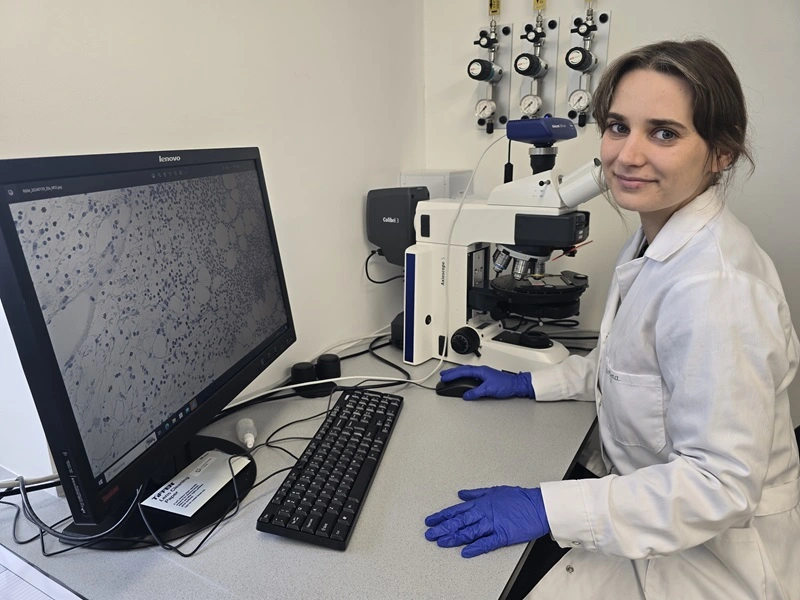Identification of novel ILC2 activators in melanoma
Miniature 8, NCN

Innate Immunity Research Group, Łukasiewicz – PORT
She defended her doctoral thesis in 2023 at the Institute of Immunology and Experimental Therapy at the Polish Academy of Sciences in Wrocław. Her research focused on investigating the role of tumor-associated macrophages in breast cancer, specifically in the context of the impact of vitamin D on the tumor microenvironment. She is currently continuing her research interests related to vitamin D and the role of immune cells in cancer development working as a postdoc at Innate Immunity Research Group. The project titled “Identification of novel ILC2 activators in melanoma,” funded as part of the MINIATURA 8 grant competition, aims to characterize ILC2 (innate lymphoid cells group 2) and mouse melanoma cells under stimulation with IL-18 and calcitriol (the active form of vitamin D).
ILC2 are a newly discovered group of immune cells, which play a crucial role in defense against parasites. Their role in activating anti-tumor immune responses has also been demonstrated. ILC2 are found in barrier tissues, such as the skin, where they show enhanced expression of the IL-18 receptor. While IL-18 produced by keratinocytes stimulates the inflammatory response, vitamin D plays immunomodulatory and anti-inflammatory roles in the skin. Moreover, vitamin D, which is also primarily synthesized by keratinocytes, is widely recognized for its anti-cancer activity. The involvement of IL-18 and the active form of vitamin D (calcitriol) in the activation of ILC2 and their role in the pathogenesis of melanoma has not been studied yet. The results of this project may contribute to a better understanding of the immunological mechanisms associated with melanoma and potentially open new therapeutic approach to fight against cancer.

